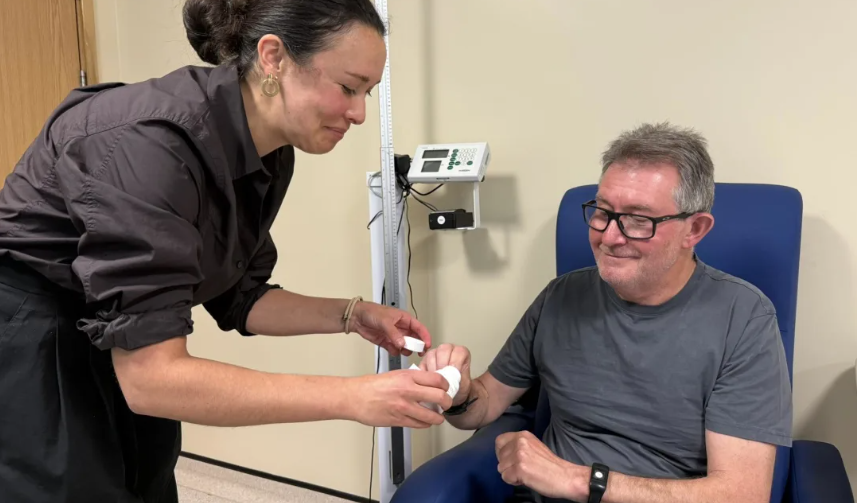A pioneering clinical trial for people with a sleep disorder that puts them at higher risk of developing Parkinson’s has recruited its first UK participant.

The trial involves 40 people with iRBD (idiopathic REM sleep behaviour disorder), recruited from the Discovery Cohort study at the Oxford Parkinson’s Disease Centre (OPDC), which is supported by the NIHR Oxford Biomedical Research Centre (BRC).
Funded by the Parkinson’s Virtual Biotech, the trial, part of a global effort with Australian drug discovery company, Syntara, is investigating a potential treatment, known as SNT-4728.
With sites in Australia and the UK, the partnership is focused on looking at the earliest causes and signs of Parkinson’s to uncover whether a potential treatment can reduce inflammation in the brain to hopefully protect brain cells from dying over time and slow down or stop the condition from developing.
IRBD is a diagnosed condition where people act out their dreams, sometimes multiple times a night, which is linked with an increased risk of developing Parkinson’s disease.
Three-quarters of the participants will receive the active medication and the remaining quarter will receive a placebo for 12 weeks. Brain scans will form a major part of the study to see what is happening deep within the brain, offering unprecedented insights into the early causes of Parkinson’s and whether the potential treatment offers hope of delaying or stopping the onset of the condition.
Francis, who is living with iRBD, was the first UK participant to be recruited. He said: “I took part in this research as it felt like time to contribute something back. It is also good to have an understanding of Parkinson’s moving forward, how it progresses, and anything that I could do to slow its progression. The hope is that a cure, or a slowing down of the condition, will be found for the future, and give people hope.”
The UK part of the trial is led by Professor Michele Hu, Professor of Clinical Neuroscience at the University of Oxford’s Nuffield Department of Clinical Neurosciences (NDCN) and Co-theme Lead of the NIHR Oxford BRC’s Preventive Neurology Theme, and NDCN Research Fellow Dr Karolien Groenewald.

The OPDC was established in 2010, with funding from Parkinson’s UK and the oxford BRC, to build a wealth of information about Parkinson’s, its early signs and symptoms. It allows rapid recruitment of people to cutting edge clinical trials such as this.
Professor Hu said: “We set up the Oxford Discovery RBD cohort around 10 years ago, and I am delighted that we now have a funded trial to offer participants living with this condition. This is going to significantly advance our understanding of RBD and offer real hope that we can prevent or delay onset of future parkinsonism for these individuals and their families.”
Around 153,000 people in the UK are living with Parkinson’s and there are currently no treatments that can slow or stop the condition. Predicting those who might go on to develop the condition or identifying people earlier in the condition’s development would allow for greater research into potential treatments that act before too many brain cells have been lost.